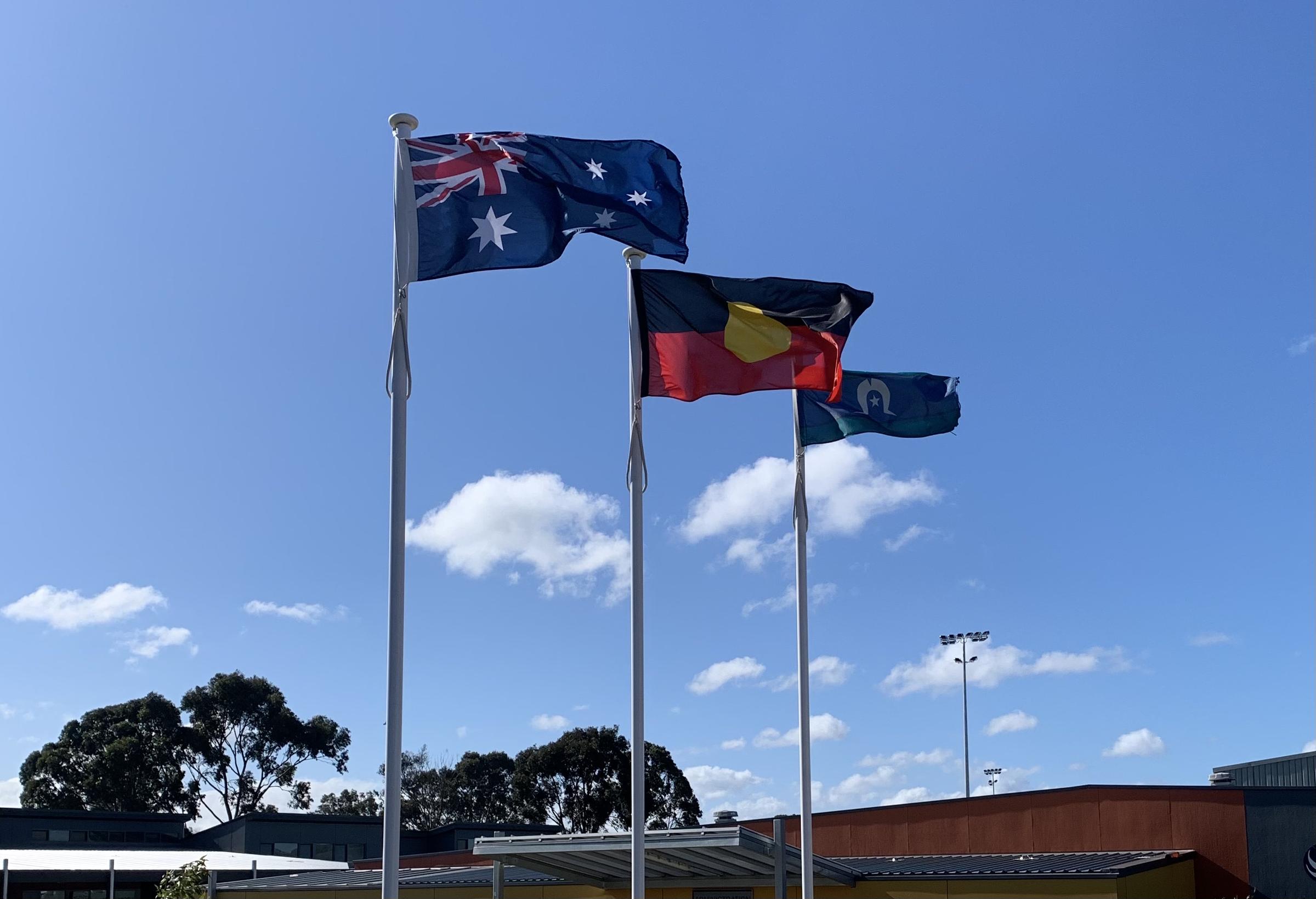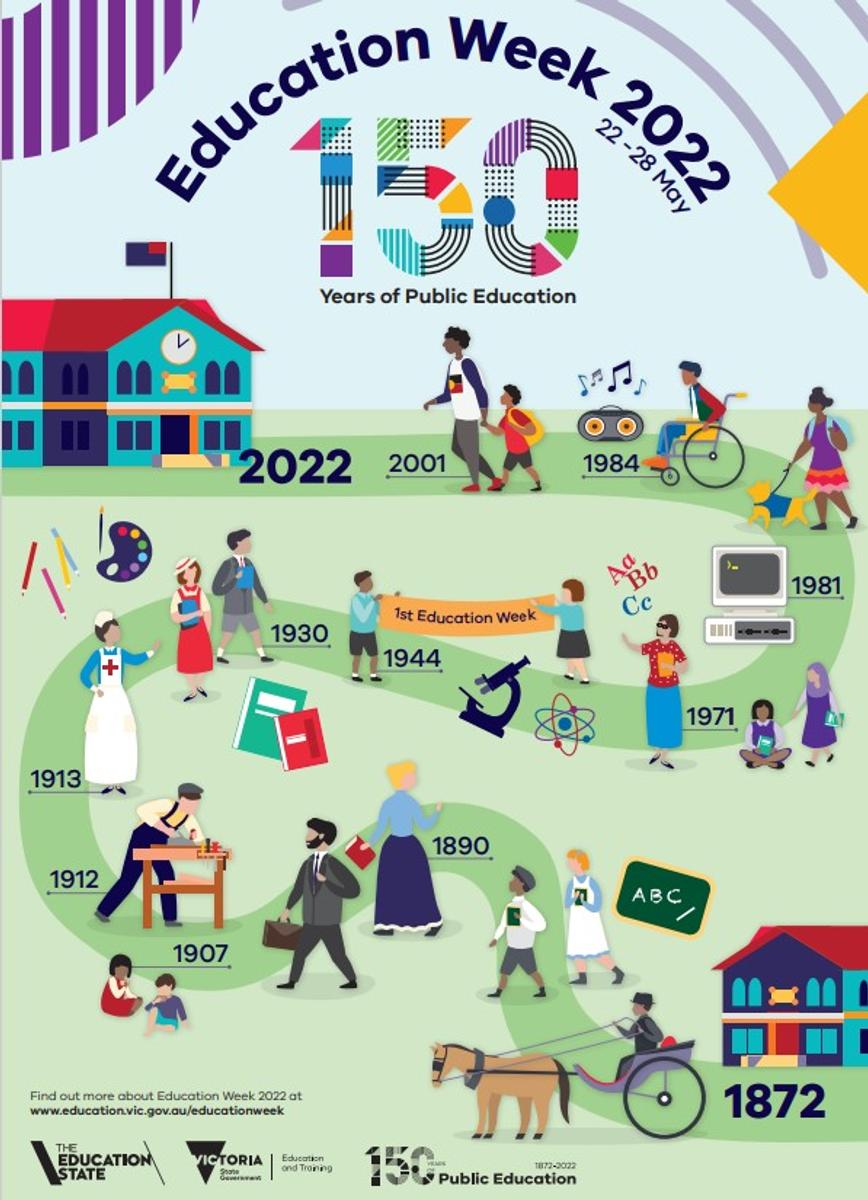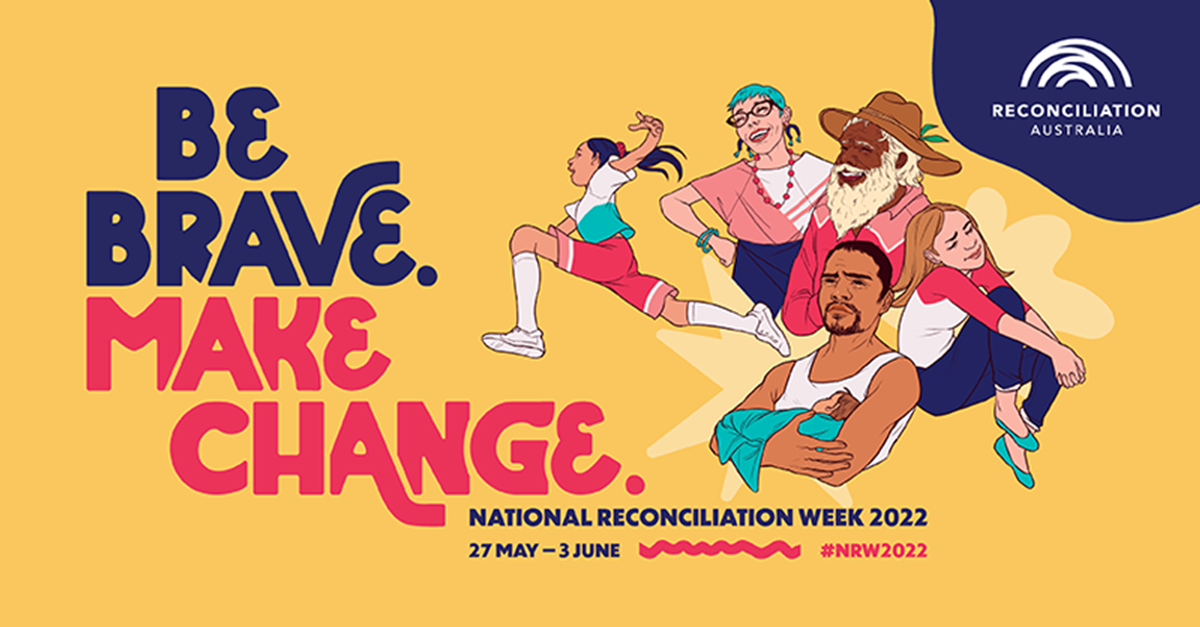Assistant Principals' Report

150 years of public education in Victoria
This year, Education Week runs from 22–28 May. The theme, ‘150 Years of Public Education’ commemorates the past, celebrates the present and imagines the future of education in Victoria.
The 150 year anniversary of public education is an opportunity for us to commemorate the long and proud history of high-quality education in Victoria and to reflect on our own engagement with the state education system.
Why is the anniversary important?
The Education Act of 1872 was the first of its kind in the world.
Education was free and compulsory, so the whole community would benefit.
All children aged 6-15 years had to attend school unless they had a reasonable excuse.
Education was secular. That meant there was no control by any church.
Being a forerunner of free, secular and compulsory education is one of Victoria’s greatest achievements. The first in the Australian colonies.
In the last 150 years, a lot has changed. But public education remains a vital part of the Victorian community. This includes our schools, TAFES, kindergartens, libraries and archives.
Before 1872 most children living in Victoria were enrolled at government-aided institutions, others attended independent or church schools. A few were educated at home by tutors and, at a time when schooling was neither compulsory nor free, some received no formal education at all.
This year, Greensborough College is 32 years old. In 1990 Watsonia High School and Watsonia Technical School were merged to form Greensborough College for the beginning of the 1990 school year. Since we opened, the school has continued to offer a stimulating blend of academic, cultural and sporting activities that equip our young people with the essential skills and qualities they will need to be become successful members of the broader and global community. At Greensborough College we have high expectations of everyone to be outstanding representatives of our College, to be demonstrating our school values of Courage, Aspiration, Respect and Equality (CARE). At Greensborough College we CARE about the life outcomes for all students.
Classroom Activities:
Help students to create interview questions they can ask their parents or grandparents about their experiences of public education.
Students can draw or write about imagining the future of education and decorate classrooms and learning spaces with their ideas and creations.
Invite students to contribute to the 150 years digital time capsule by emailing their school memories (photos, reports, trivia) to 150years@education.vic.gov.au
Reconciliation week - Sorry Day
National Sorry Day is an Australia-wide observance held on 26th May each year. This day gives people the chance to come together and share the steps towards healing for the Stolen Generations, their families and communities and the power of saying sorry.
National Reconciliation Week is celebrated each year from 27th May to 3rd June and this year the theme is, Be Brave, Make Change, urges the reconciliation movement towards braver and more impactful action to achieve sustainable change.
It is a time to celebrate and build on positive and respectful relationships and connections between all Australians and Aboriginal and Torres Strait Islander people.
It is a time for all Australians to learn about our shared histories, cultures, and achievements, and to explore how each of us can contribute to achieving Reconciliation in Australia.
Reconciliation is a journey for all Australians – as individuals, families, communities, organisations and importantly as a nation. At the heart of this journey are relationships between the broader Australian community and Aboriginal and Torres Strait Islander peoples.
Reconciliation is about creating equity and equality, closing the gap and building relationships between the broader Australian community and Aboriginal and Torres Strait Islander communities.
Reconciliation means achieving equality in life expectancy, education, employment and all the important, measurable areas of disadvantage.
Many Aboriginal and Torres Strait Islander Australians experience vast differences in health, education, employment, and standards of living compared to their non-Aboriginal counterparts.
Understanding these inequalities is the first step to reconciling the differences between us.
Over the coming week we will be teaching our students various programs in their Connect classes and other areas to celebrate, as at its heart, Reconciliation is about strengthening the relationships between Aboriginal and Torres Strait Islander peoples and non-Aboriginal peoples, for the benefit of all Australians.
‘We are all ‘In this together.’
Rose Thomson and Glenn Jenner
Assistant Principal's


